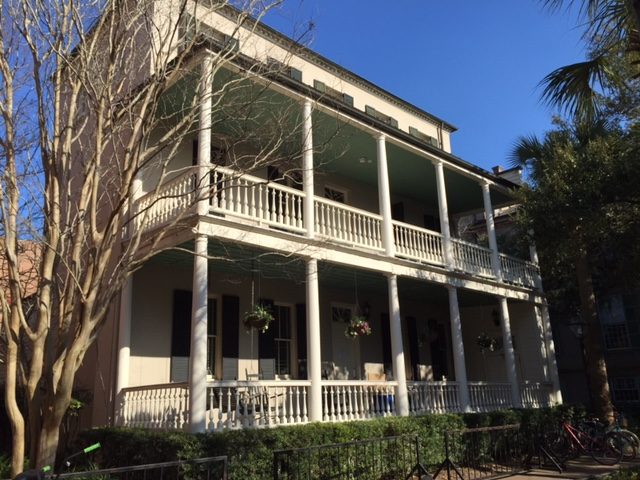On the Road to College with Betsy Woolf – College of Charleston

The student/faculty ratio is 16 to one; there are no teaching assistants; and the largest class is probably no more than 120 students (Introduction to Biology and Introduction to Psychology, for example). With only 1500 graduate students, the College of Charleston is a public liberal arts college that focuses on undergraduate education.
My two-day counselor visit took me and a group of fellow counselors throughout the university where we toured its gracious Southern grounds, its marine science facility on nearby St. John’s Island, its sports facilities (Charleston is particularly strong in sailing), and Harbor Walk, a facility near the Charleston Aquarium that houses the Department of Computer Science. We sat in on classes – my digital media class was engaging – and met with faculty from a number of programs, including computer science, hospitality, marine biology and the honors college. Areas of study run the gamut from discovery informatics to historic preservation to arts management to public health to biology. The students we met were universal in their love of the community feeling on campus, as well as the hospitality of the people of the city of Charleston, where almost everything is within walking distance. Charleston is home to Boeing and to a number of rising technology start up companies, and of course, a thriving tourism industry.
Students apply to the College of Charleston itself, not to a particular major, and once on campus, there are ample areas of studies and experience from which to choose, including student exchange and study abroad programs, a sea semester, a program at the Woods Hole Oceanographic Institution in Maine, and iCharleston, an opportunity for freshmen to spend the first semester abroad in London, Dublin or British Columbia. There is Greek life on campus, an honor code, research opportunities for undergraduates, and a one month “Maymester” in which students can obtain internships, take classes or engage in research.
Copyright 2015. Betsy F. Woolf. All rights reserved.

